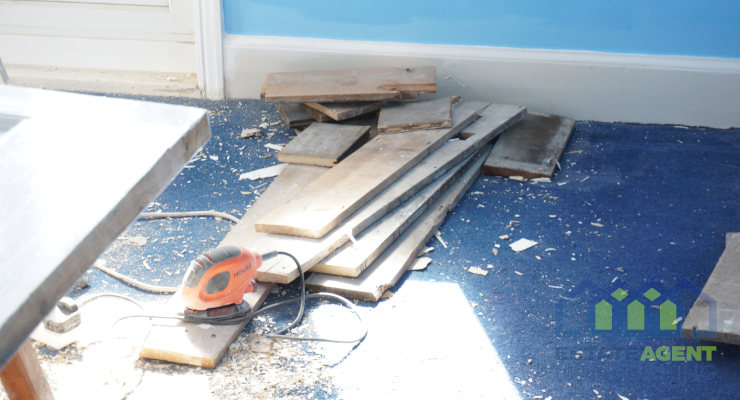House Flipping vs Buy and Hold Investing: What You Need To Know
For investors looking to get started in real estate, the question inevitably arises:”Is house flipping or buy and hold investing more profitable?”. The answer is that both of these strategies have their own merits and measure of profitability, and the one the investor chooses will depend on their goals and level of involvement.
It’s important for the investor to establish a clear idea of what they want and what is possible in the current market. This article will go into some of the finer details of becoming a house flipper versus buy and hold investing:
House Flipping Benefits Vs. Disadvantages
House flipping refers to the process of buying undervalued real estate, renovating, and then reselling the properties at a higher cost. Investors following this real estate strategy set a timeline that allows them to transform and sell the home in the shortest amount of time possible, helping them to ensure they maximize their profits and minimize their holding costs.
The major benefit of flipping houses is that it leads to faster financial gains. The property may be vacant while renovations are ongoing but the one-time sale is enough to repay these costs, the cost of a loan and still have profits left over. There’s no dealing with tenants – only renovations and contractors, and at the end of the process, buyers.
On the flip side of that, there are some disadvantages to keep in mind. Flipping houses is a great way to earn profits, but the barrier to entry can be higher for less experienced investors. Investment costs are higher than the costs on primary residences, and there are specific tax implications that will need to be taken into consideration.
Buy And Hold Benefits Vs. Disadvantages
Buy and hold investing is significantly different from house flipping. While some renovations may take place, the investor doesn’t buy the home with the idea of reselling it immediately. Instead, they hold onto the property for longer-terms, and tenants may be found to decrease the ongoing holding and maintenance costs. A free online buy and hold calculator can be used to confirm how profitable a property will be and whether it’s worth buying.
There are several advantages to becoming a buy and hold investor. To start with, this method leads to higher cash flow over time. Because there is less of a rush, it’s less pressure for the investor overall. The biggest benefit is the potential for passive-income for extended periods of time, compared to flipping which is an active process requiring a lot of oversight.
Buy and hold investing does have some disadvantages that can affect how suitable this strategy is for the investor. Market fluctuations are a bigger concern than they would be with house flipping, and there is a chance that the economy could soften and the property value could decrease. Another con is having to manage the home and tenants. The investor will need to ensure that tasks like tenant-screening, rental payment collections, and other aspects of the contract are fulfilled, or hire a property manager to handle it instead. Lastly, there’s a reason there are so many tenant horror stories out there. Finding good tenants can be a difficult process.
Flipping Vs Buy And Hold Investing
It’s evident that these two strategies have the potential to bring in good profits, but that they are also vastly different. The difference can ultimately be summarized as getting a one-off amount of cash in or earning a consistent but smaller income per month. The other distinction is in how actively involved the investor will need to be. Flipping requires a lot of involved management, while buy and hold management can easily be outsourced.
House flipping is better suited to the investor with time on their hands and some basic experience in home renovation. Since fix and flip investors commonly make use of external funding to complete their projects, they don’t need a lot of personal funds to get started. Buy and hold investing is typically thought to be better for investors that have a need for steady cash flow but have some established funds of their own that can be used to hire a good property manager.
It may be better to get into buy and hold investing after having made up some ground by house flipping first. Whichever method the investor decides to go with, it’s key to look at the conditions of the current real estate market and use that as a guideline for when and where to invest.









